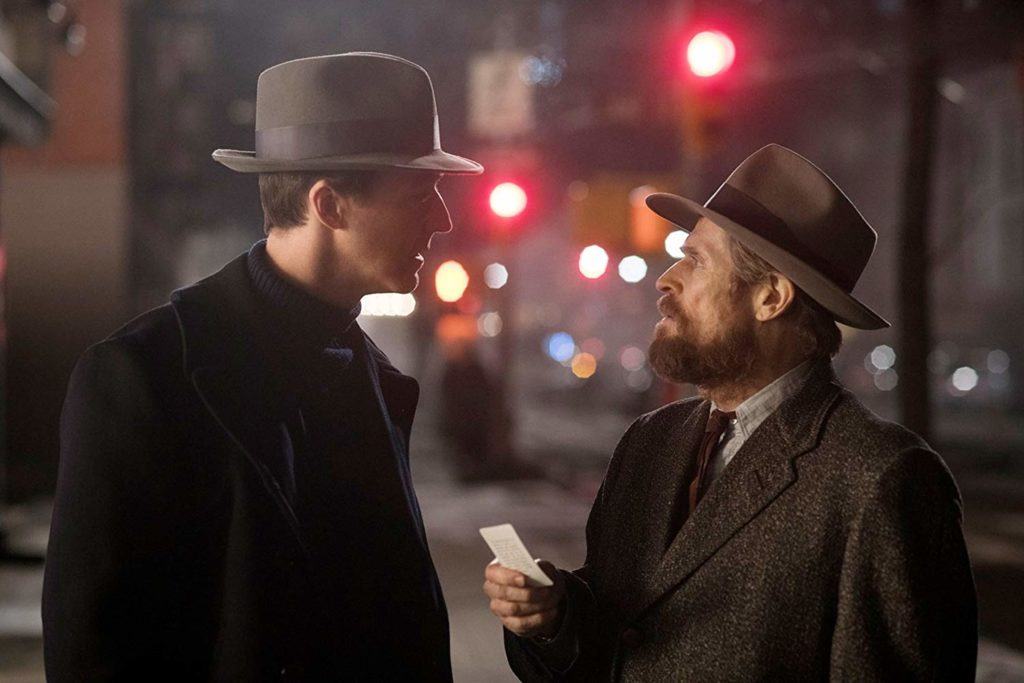Motherless Brooklyn

Edward Norton and Willem Dafoe star in MOTHERLESS BROOKLYN. (Photo: Warner Bros.)
Any depiction of Tourette syndrome on screen is fraught with risks, but Edward Norton in Motherless Brooklyn mostly gets it right.
The twitches, affectations, and verbal outbursts of his private-eye protagonist aren’t exploited or played for laughs, but instead used indirectly as a tool for acceptance and empowerment.
Meanwhile, in his first directorial outing in almost two decades, Norton’s stylish and evocative film noir pays homage to the genre with a convincing period re-creation that immerses moviegoers in the gritty urban milieu of 1950s New York.
The film treads familiar pulpy territory, with streetwise characters — gumshoes, mobsters, corrupt politicians, alluring femme fatales — we’ve essentially seen before, and is more noteworthy for its vintage atmosphere than its narrative substance.
Norton stars as Lionel, a private detective distraught after his mentor and former boss (Bruce Willis) is murdered under mysterious circumstances. Consumed with grief and guilt, he becomes obsessed with solving the crime, embarking on an odyssey to every dark corner of the city.
Lionel is constantly apologizing for his “condition,” which affects his confidence in social situations but never hinders his acute instincts or his photographic memory.
Sparse clues lead him into a Harlem jazz club, where he meets a lawyer (Gugu Mbatha-Raw) who exposes a possible link to high-level political interests, specifically involving city planner Moses Randolph (Alec Baldwin) who’s mounting a gentrification campaign to marginalize the working class.
Further assistance comes from a mysterious figure (Willem Dafoe) with personal axe to grind with Randolph, suggesting that his connections to the murder case are about more than business.
Norton goes all-in with genre staples, including a pervasive jazzy score and matter-of-fact narration, along with characters conducting shady business in dark alleys and smoke-filled nightclubs wearing trench coats and fedoras.
The central mystery is not as compelling in Norton’s screenplay, based on a novel by Jonathan Lethem, which means the leisurely paced story tends to meander as periphery characters come and go, and red herrings emerge and disappear. Not all of its pieces really fit together.
Despite the film’s epic ambitions, it’s unlikely that moviegoers will be as invested in the outcome at Lionel seems to be, which makes Motherless Brooklyn fascinating yet forgettable.
Rated R, 144 minutes.